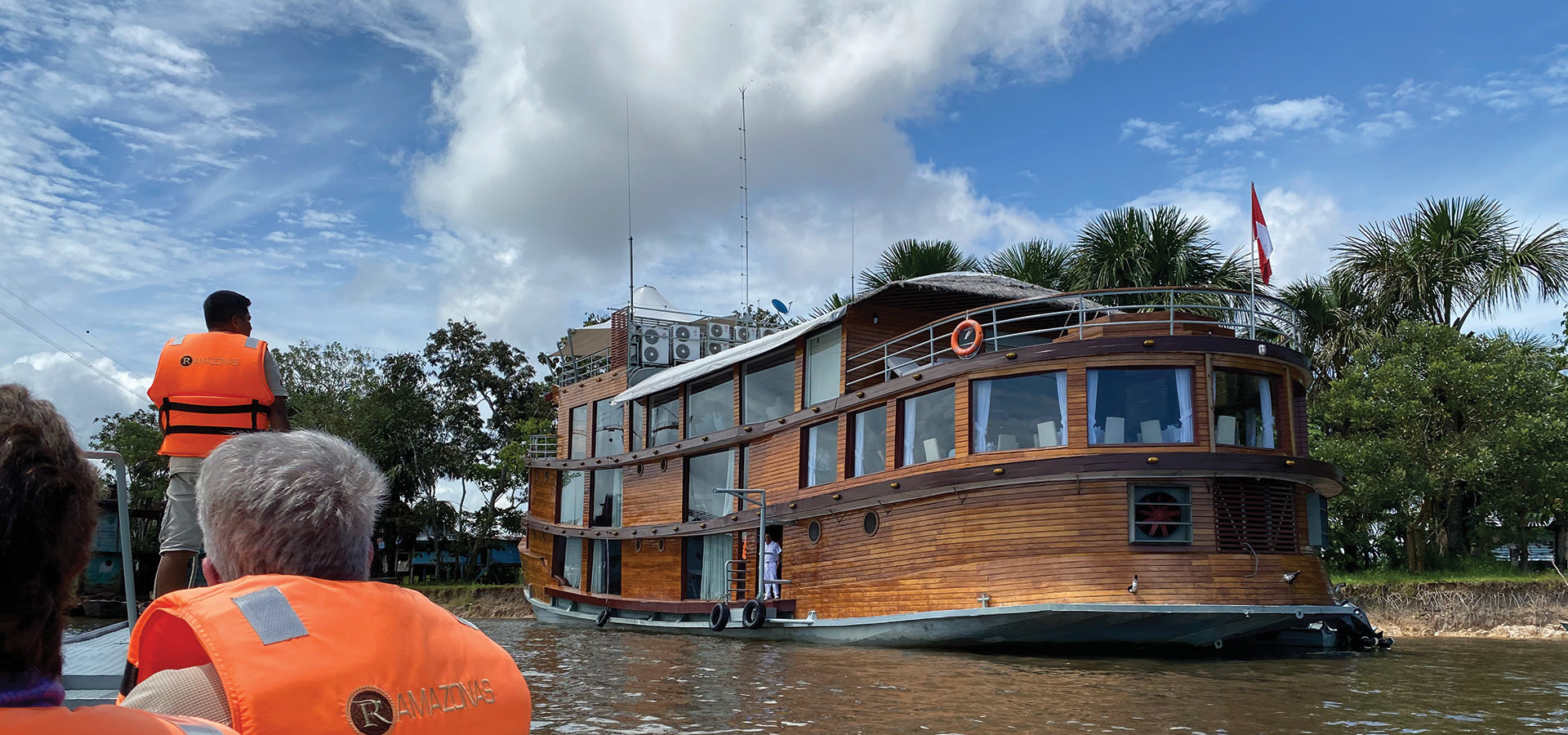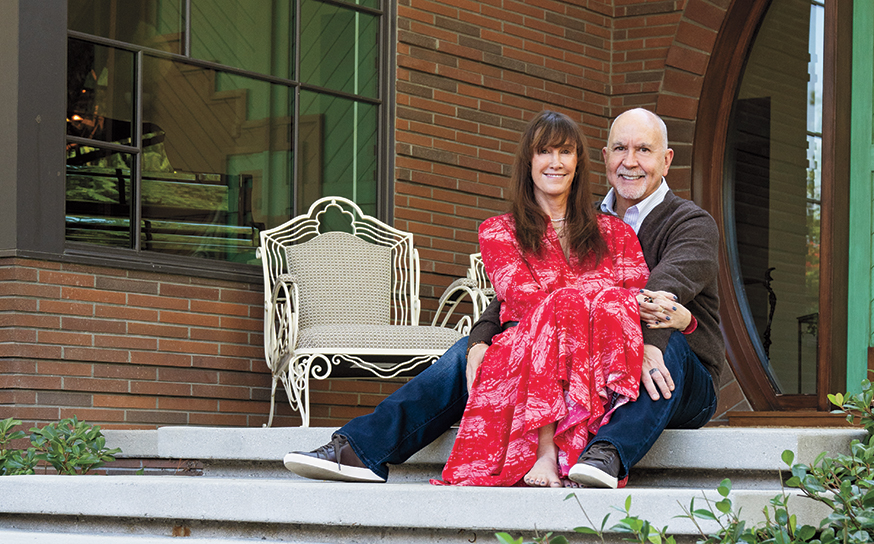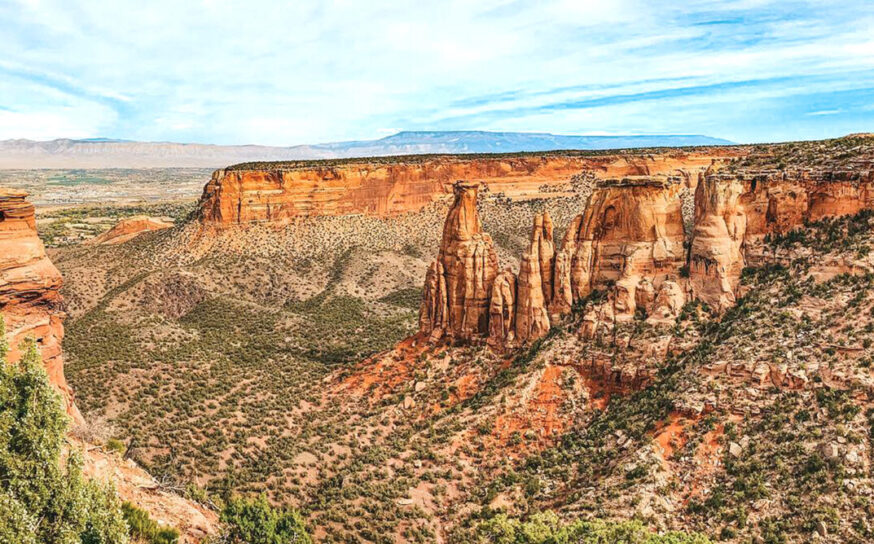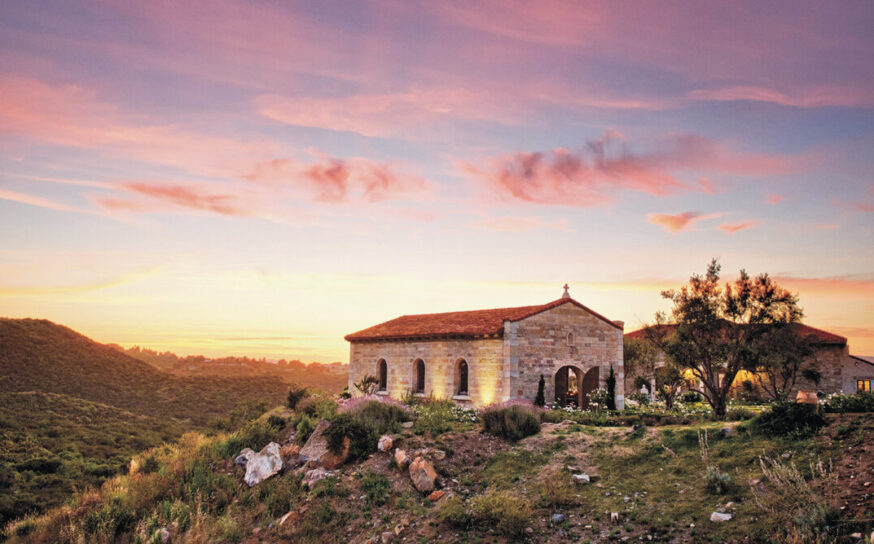When I was in my 20s, I set a goal for myself that I was going to climb to the top of Machu Picchu by age 30. I believe it’s imperative to set goals and strive to accomplish one’s youthful objectives, especially if they build inner fortitude.
It also helps to have a life partner who, though your goal is 27 years behind schedule, still wants to make it happen for you.
By December 2019, Ken had meticulously planned our trip to Peru. He crafted a beautiful three-week itinerary, starting in Lima, traveling to Tarapoto, then Iquitos, then seven days on the Amazon aboard a magnificent vessel, followed by Cuzco and the prized destination, Machu Picchu. From there we would overnight on the Belmond train to Lake Titicaca before returning home.
Before we left home on March 9, COVID-19 was ramping up. Yet in all of South America, Brazil had the only confirmed case. We weighed the risks, and against the protestations of family and friends we decided to go.
I packed hand sanitizer, Airborne tablets, masks and gloves. LAX was busy—nothing out of the ordinary. Landing in Lima, there was no health screening.
We enjoyed our one night in Lima and two nights in Tarapoto. Then we flew to Iquitos, where we found fellow travelers from all over the globe huddled around the Hilton lobby TV watching CNN’s updates on the fast-spreading virus. We had two quiet nights at the Hilton before meeting the boat that would take us deep into the Amazon jungle.
At 10 a.m. in the hotel lobby, the Cruceros River Cruise Company met us. I could see three others in a van, but introductions and pleasantries were brief. It was time to meet the Amazon.
We alighted the Cruceros Amazonas, a magnificent vessel that accommodates 26 passengers and 20 staff. She is a wooden ship—elegant and inviting—with big windows and even a Jacuzzi on the top deck. We would share the boat with only three other guests, the Clark family. Ten others had canceled at the last moment.
The boat owner, Oscar; his wife; the security detail; our guide, Oswaldo; the ever-important barman, Vincente; and all the staff lined up for introductions and announcements. I was like a little kid, fidgety and excited, as they led us to our presidential stateroom.
The Amazon River proved breathtaking. It’s an entirely unique ecosystem and one of the most stunning bodies of water on earth.
On our first exploration we quietly motored down the river’s tributaries and marveled, mouths agape, at the wild macaws loudly proclaiming their dominance over the sky. The magical reflections of fluffy, white clouds rippled on the water’s surface. Wild sloths lazed in the trees, and the elusive pink dolphins even made a few appearances. This would be one of the last outings of the trip.
It was the middle of the night when we heard loud knocking on our stateroom door. We awoke, still sleepy and confused. Yet the knocking persisted.
Were we under attack? Pirates are a legitimate threat to luxury river cruises, so anything was possible. We donned our bathrobes and stepped timorously into the dark hallway where a sober Oswaldo waited. He was the only English-speaking staff member aboard.
Equally sleep-deprived, the Clarks soon joined us—blinking into the dark aura of confusion. We were informed that the Peruvian president had given orders to seal the country in 12 hours. Accelerated and potentially impactful decisions needed to be made. The options included travel through the night, which is never done due to safety concerns, or taking our small, fast skiff to Iquitos—a dangerous, six-hour trip—in hopes to get a flight out of the country before the walls came down.
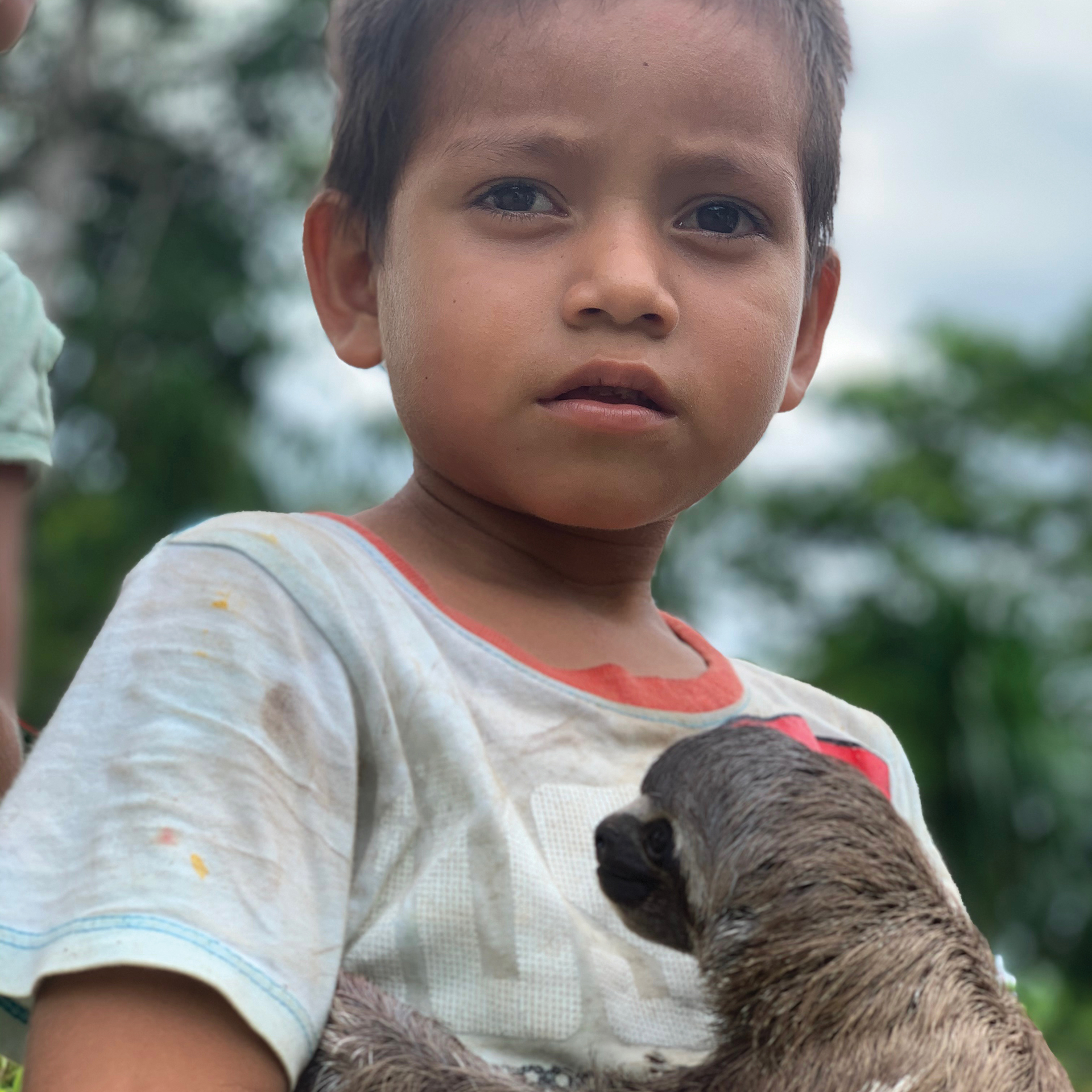
There were no guarantees for our safety and no assurances for getting a flight to the States … or anywhere for that matter. The five of us huddled and decided we would stay put on the boat while evaluating our options over the next coming days.
With the sun rising over the water, the promise of a new day was simply that: a new day. At a morning breakfast briefing, we were mandated to dock our vessel back at Iquitos and no one would be allowed to disembark until further notice.
Shortly after this dramatic revelation, the army arrived at our flanks—armed and austere. They wanted to come aboard, but the owner gave a resounding “no.” How he held the authority to stop them we don’t know, but we all exhaled in relief.
The next days followed a distinct rhythm. Breakfast briefing, trying to find flights home or anywhere else, watching the news, WhatsApp messaging, communicating with contacts at the U.S. State Department and Embassy. As a South Bay real estate agent, I was in several escrows and needed to tend to my clients. Family and friends at home were also worried about our safety.
The most surreal aspect of our lockdown was the eating and drinking as if nothing in the world had changed, except that everything had. We were imprisoned in the middle of the Amazon on a boat with no departure date in sight.
The staff did everything in their power to keep the morale up, providing education on the Amazon’s medicinal plants and the history of the inhabitants. We had movie night, a pisco sour-making class. But I realized it was time for us to pamper our staff, show gratitude, love and appreciation for those who cared for us. I knew they were scared and missing their own families. We switched roles, and we five passengers became the staff and the staff became our guests.
I cooked crepes in the galley kitchen with the chef watching amusedly. The Clarks waited on the tables. Ken immortalized it all on video. I will never forget this magical juncture—we were communing as one people, dancing, singing and feasting together against a backdrop of total uncertainty.
Days and nights crawled past. Flights were booked and then canceled by the airlines. We watched the president of Peru give his nightly pronouncements.
Suddenly we received an email from the American Embassy with instructions to provide information regarding our group. There was an official manifest being compiled of all American citizens stuck in Peru. It was imperative that all the names were complete and correct in one email. We did not want to miss our placeholder on the manifest. It was our passage home.
As the days, meals, massages, cocktails and nights flowed into one, cortisol levels were rising. There were many things for which to be grateful, but uncertainty was a yoke around our collective necks.
In the middle of the night, the next magical email arrived. The authenticity of the documents we needed to complete was undeterminable. The travel pass looked like the worst internet prank. There was the terrifying State Department “promissory note,” and as the term implies, you are promising to pay an undetermined amount of money for a flight out of the country. If payment is not received once you are back home, your passports are invalidated.
We gathered on the main level at the bar and filled out our documents. We had to be ready to leave for Iquitos port within a few hours. Our bags had already been packed in anticipation.
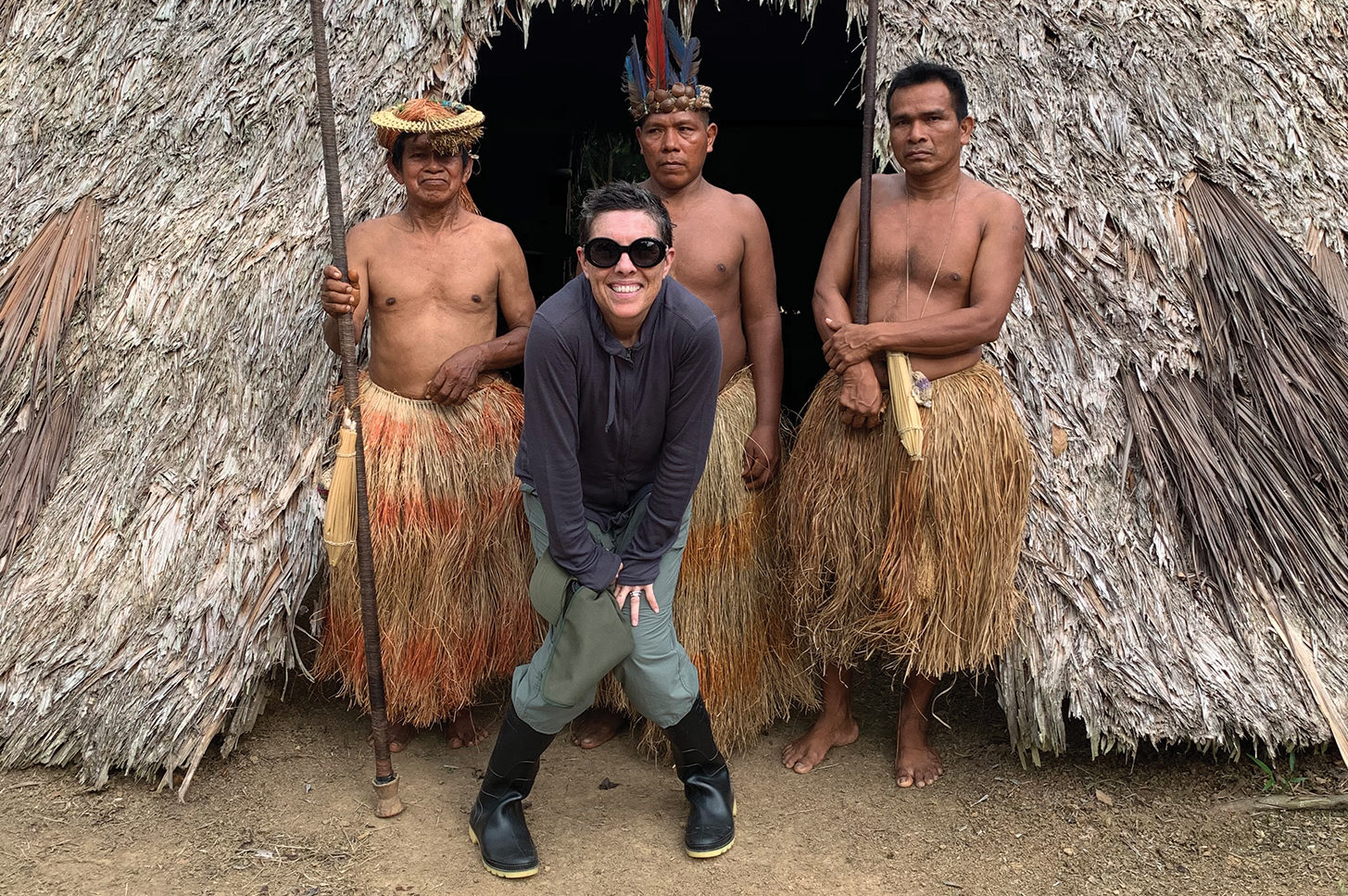
Alison Clay-Duboff
Successful evacuees had warned of long lines and a lack of food, water or bathrooms at Iquitos Airport since it was officially closed. We’d take a State Department flight to Miami on a plane reconfigured to return illegal immigrants to their home countries in South and Central America. There would be no meal service or water, we were told.
The chef prepared us five boxed lunches. Our hearts were racing with cautious optimism. And then it was time.
The crew lined up, this time for an emotional farewell—arms filled with local handicrafts for us. They had become our de facto family during our 12-day quarantine. We feared for what would become of them. Tears were shed, but it was time to cut the umbilical cord. These amazing Peruvians had held our lives in their grasp.
The plan was that once we arrived at the Iquitos port, we would be met by a police escort that would then ride alongside our van to the airport. It sounded reassuring, but it didn’t make me feel particularly safe. Why exactly did we need protecting?
With trepidation, we climbed into the skiff. This time we had masks and gloves along with our life vests. We docked in a part of Iquitos we had not previously seen. Here the poverty was palpable. Our security followed closely behind, with Ken bringing up the rear. Locals stared curiously as we walked through the mud to our awaiting transport.
Our police escort was the epitome of an Amazonian woman: tall, strong and foreboding … until she smiled warmly for our selfie. We loaded up the van and said another emotional adieu to the owners of the boat. Oswaldo promised to stay by our sides until we disappeared past airport security.
With a heavy military presence and several roadblocks, we prepared to be stopped by the army for verification of travel passes. We were not stopped once.
Life on the street appeared almost normal, with open markets full of shoppers. But as we approached closer to the airport, the scene segued into a heartbreaking tableau of painfully long lines at a bank of people with signs imploring the president to allow them transport home to their families.
We arrived at the airport gates. They were resoundingly closed. I hadn’t noticed the gates when we first arrived, which seemed a lifetime ago.
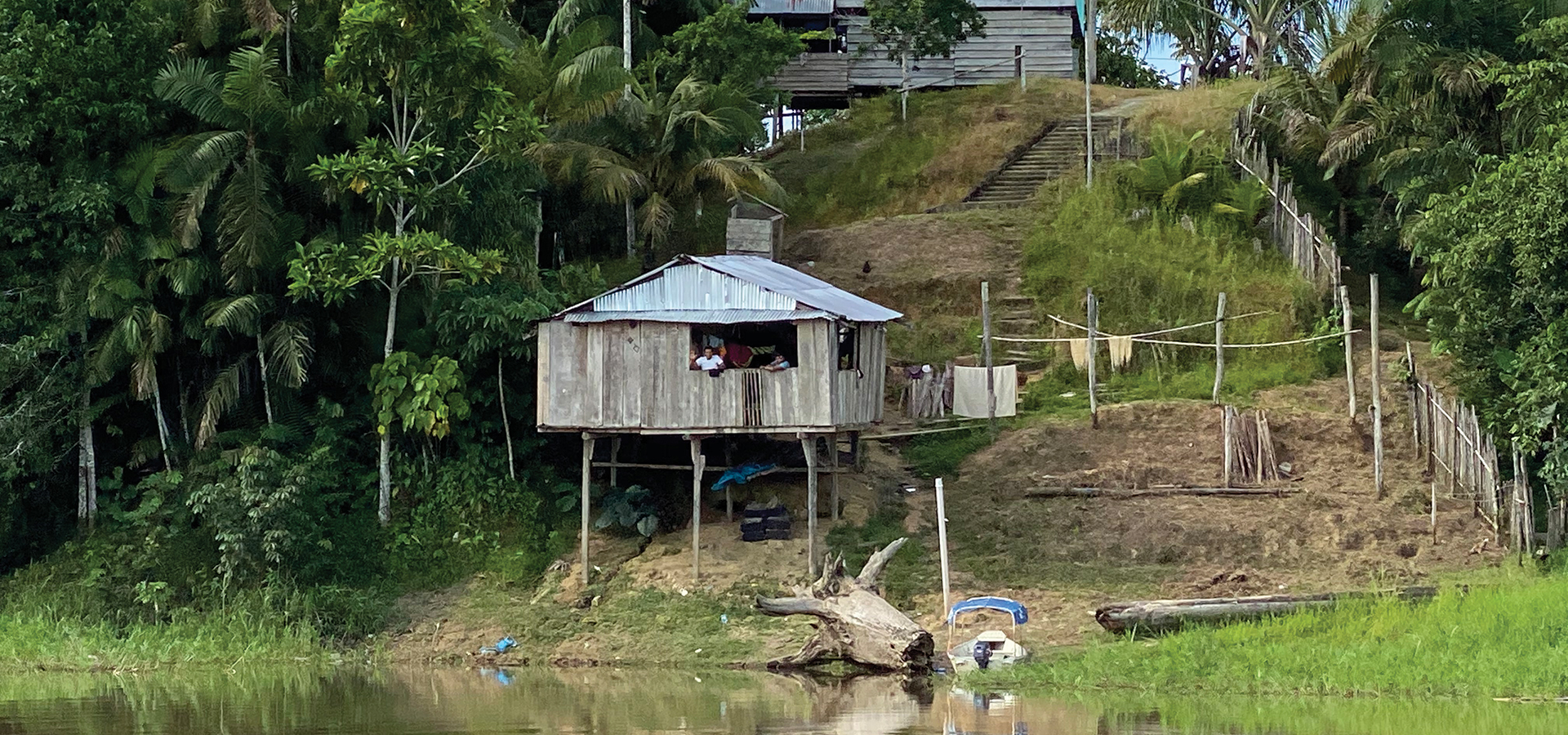
Inside the closed airport, a surreal atmosphere permeated. At first it was completely empty, but soon a long line formed. It was hot beyond imagination, and there was no direction or guidance. Mr. Clark Sr., age 90, was wilting under the heat and stress.
Finally a health screening station was set up: blood pressure and temperature checks, all questions in Spanish. Ken’s and the Clarks’ blood pressures were understandably elevated.
Soon the gate crew appeared. We watched in exhausted anticipation as they marked distance placements for the line. We noticed the Clarks having a problem in front of us. Lloyd was not on the manifest. Panic ensued. Oswaldo ran around trying to contact someone of seniority. I called a contact at the U.S. Consulate. The wait was distressful. The Duboffs were not leaving Peru without the entire Clark family.
After what seemed an eternity, good news: Lloyd was added to the manifest. We all passed through security. We were sweaty, nervous, relieved and anxious. But we wouldn’t truly believe it until we were airborne.
In the gate area we heard snippets of other evacuees’ horror stories. Not everyone was as fortunate as we were. After what seemed to be an inordinate amount of time, we got a lovely surprise: Our ride out of Peru was a regular commercial LATAM jet. The plane sat on the tarmac with a fuel truck waiting. An argument mounted as to who would pay for the gas, Peru or the U.S.
The LATAM crew arrived. As they walked through the gate area to the awaiting jet, the evacuees gave a standing ovation with shouts and tears of gratitude. Ken and I walked across the hot tarmac to our awaiting plane, the Clarks ahead of us. Our hearts pounding, we climbed the metal stairs and sank into our seats, retreating into our private thoughts.
At a deserted Miami Airport we found no hygiene protocols and a ghostly atmosphere. We spent the night at the Clark home on the New River in Fort Lauderdale. The next morning they took us back to the Miami Airport, where we bid one another tearful farewell. In the six months since this goodbye, the Clarks’ hugs are the last ones we’ve been privileged to enjoy.
The flight to LAX was no less surreal. I cleaned our pod with intense, stray, nervous energy. We attempted to relax until, over the PA system, a moment of silence was requested for a fallen flight attendant just lost to COVID-19.
Finally home—18 days after we left the South Bay—we found gestures of kindness from our neighbors with groceries filling our kitchen and our front porch. It was the first and only time I cried. I cried with joy. I cried with relief. I cried with gratitude. Home. We were home.
Join the Valley Community






